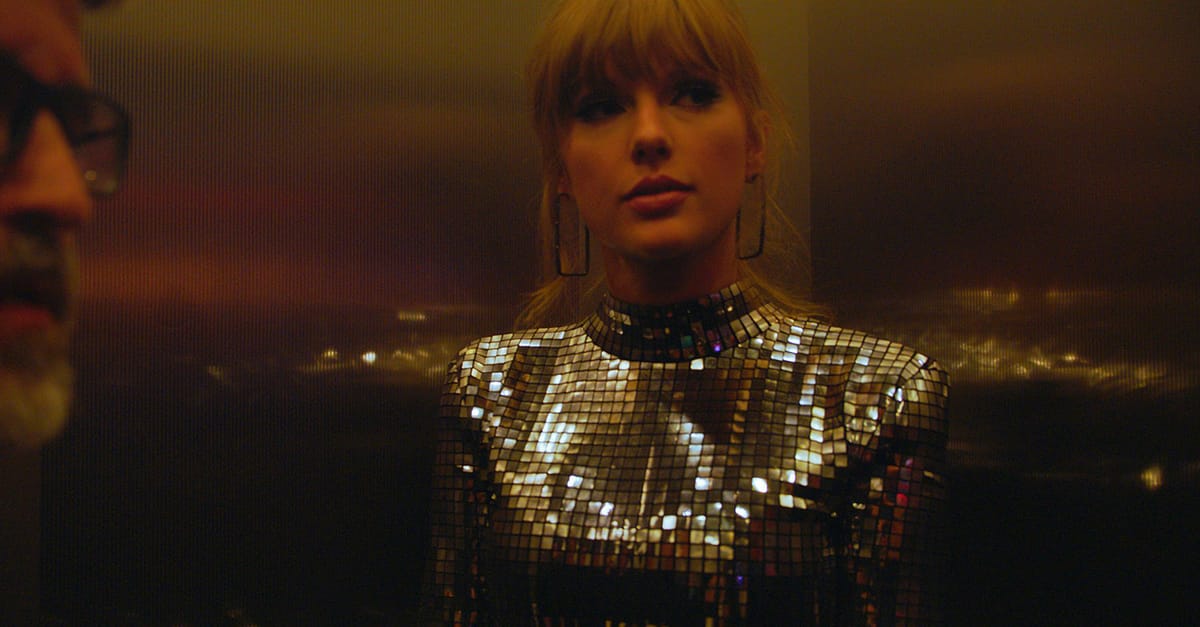“Taylor Swift: Miss Americana” Tackles Politics in Pop Culture

“Taylor Swift: Miss Americana” fails to deliver what I had hoped it would from pop-sensation Taylor Swift but still manages to capture the spirit of the singer in some capacity. Released by Netflix on Jan. 31, “Miss Americana: Taylor Swift” uncovers the singer-songwriter’s attempts to remedy her public persona with the looming expectation of being “good” in the eyes of the media. With a title inspired by the song “Miss Americana and the Heartbreak Prince,” a track from her latest album that touches upon Swift’s discontent with American politics, the tell-all documentary reflects Swift’s growing desire to break free from the constraints of outside expectation in favor of becoming a more active voice in today’s political climate.
The documentary covers many pivotal moments in Swift’s career between 2018 and 2019. With behind-the-scenes footage from Swift’s “Reputation” stadium tour to even smaller glimpses into the songwriting process for older songs such as “… Ready for It?” or even newer releases such as “ME!” feat Brendon Urie of Panic! At The Disco, the documentary chronicles Swift’s journey in her struggle to cultivate her own voice while being simultaneously stifled by the image of being a star in the spotlight. Even though the documentary adopts a lighter tone from the get-go, it does manage to cover some of the more troubling aspects of Swift’s tumultuous career.
From 2016 to 2019, Swift dealt with many troubling events in her life; in 2016 she became embroiled in a famous feud with hip-hop rapper Kanye West, where Swift was condemned for being dishonest in acknowledging her consent to some controversial lyrics in West’s then recent single release called “Famous.” Her 2018 brought a battle with an eating disorder, leading all the way up to her sexual assault trial case and her first public political stand against President Donald Trump in 2019.
The documentary managed to tell the story behind these critical moments fairly well. However, it did fall short on authenticity at some points. While the documentary does provide an honest glance into Swift’s life, I was disappointed on several fronts, one being its purpose. Coming into this documentary as someone who is only vaguely familiar with Swift’s discography, I was hoping to get more of a glimpse into Taylor Swift as a person rather than Taylor Swift as a brand. Although I’m only a casual fan, it became apparent that this documentary was, by and a large, mainly about the trials and tribulations of Swift the pop-star and celebrity, and it barely even scratches the surface of Swift as a human being outside of this persona.
At times, the documentary felt disjointed with the message it was trying to promote as well. The viewer becomes overwhelmed with all of the narratives that are being reinforced, and at its conclusion, you end up feeling as though the documentary is attempting to convince you of Swift’s authenticity rather than let that sincerity show through as a natural outcome of having watched the film. To an extent, there’s certainly nothing wrong with the film’s attempt at rectifying Swift’s image in the eye of the public. With how monstrous the media warped Swift’s reputation in the wake of her blowup with Kanye, it’s understandable as to why the narrative does push a rather perfect conception of Swift.
In some respect, we could see this lack of depth as contributing to the main point the documentary pushes about maintaining privacy and the unwanted presence of the media as it continuously breaks that down. Whether it’s privacy in the sanctity of one’s mind or personal space, the decision to leave out some more honest glimpses of Swift’s life could be an attempt at reclaiming her narrative. Dealing with controversies that were spun out of Swift’s control, the documentary could be trying to preserve that privacy by not divulging too much.
That being said, the lack of Swift’s persona in the documentary caused it to become more like a campaign video conceived by her management. While Swift’s journey to finding her voice in American politics is important, I was confused as to why this narrative was the one the directors decided to lead with in a documentary about her life. Although her decision to become more public with her political views is somewhat radical as it deviates from her infamous stance against publicly talking about politics, I don’t think that decision warranted the creation of an entire documentary. The film paints Swift as a social rebel who goes against the norm to fight for what’s right, but her views are not that revolutionary, and the film, for the most part, never truly engages with her political opinions enough. It tricks the viewer in the beginning, by making it seem as though the film is about how a singer attempts to combat the noise of public opinion, but in the end, the documentary somehow makes it about Swift being as perfect as she’s always been.
For instance, in the scenes where Swift is songwriting, she always seems to come up with her next hit song perfectly. The process is very neat and tidy, without any frustration or writer’s block. Accompanied by her producer, the two create a skeleton of a song that perfectly matches what has already been put out. There are no details as to how long the process was, no scenes on how many times the song was changed or experimented with before the final cut was selected. Granted, the film has a run time of an hour and twenty six minutes, so not every part of the process could have been shown, but had they included these, the narrative would’ve felt more less planned and contrived. Moments like these, that show her in the midst of the crafting process were so necessary for me, but it seems as though they were omitted because they didn’t fit the narrative the documentary was endorsing, which was clearly reinstating Swift as the marvelous and flawless celebrity she once was.
The documentary leaves out moments that make Swift look incapable or slightly untalented, and I’m a little disgruntled at the possible idea that the entire agenda was to further pat Swift on the back for being the celebrity that she has always been. As a result, the documentary consequently contradicts itself. It tries to portray Swift as a quiet rebel who is simply not the good girl that everyone wants her to be but also simultaneously perpetuates that good girl image by touting her as a celebrity without faults.
If that’s the case, then I don’t really think there was ever really a need for “Miss Americana: Taylor Swift.” Had the documentary worked more at uncovering the thoughts and feelings of a singer who has been in the industry for close to fifteen years, I would understand the necessity of a documentary on a celebrity who is only thirty years old. However, this documentary ultimately just seems like a highlight reel.
Even if you’re a Taylor Swift fan, I question whether or not you would enjoy this film seeing as the goal is to promote the same image of Swift that has existed for years, rather than give viewers a different, more unique, in-depth glimpse into the singer-songwriter as an individual.





Comments ()